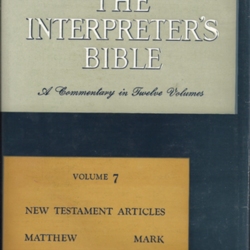

Known as the "sweet singer of Wales," he wrote about eight hundred hymn texts in Welsh and over one hundred in English. Williams's evangelistic preaching was greatly aided by his hymns, which were sung with great enthusiasm at revival and "society" meetings. He became an itinerant evangelist and for the next forty-five years served as a leading figure in the revival movement in Wales. After being refused ordination as a priest because of his evangelical beliefs, he joined the Calvinist Methodists in 1744. Williams began to study for the ministry and in 1740 was ordained a deacon in the Church of England. He had begun to prepare himself for a medical profession, but the course of his life was altered when he was influenced by the ministry of Howell Harris, an evangelist associated with George Whitefield. William Williams is usually considered to be the greatest Welsh hymn writer of the eighteenth century. William Williams and Peter Williams were contemporaries with a similar background. Thus the change from the original “Jehovah” of the first line to "Redeemer" makes eminent sense. 10:4), and the victor over "death … and hell's destruction" (Rev. But the New Testament, Christocentric focus of the text is equally clear in the repeated final line of each stanza: Jesus is the "bread of heaven" (or "bread of life," (John 6), the "rock" who is our "strength and shield" (1 Cor. "Guide Me, O My Great Redeemer" draws on images from the Exodus story in the Old Testament: "bread of heaven" (Ex. Pilgrimage is a much-used metaphor in Williams's texts. That first stanza is still in use, but the remaining stanzas come from William Williams's own translation, which he prepared for The Collection of Hymns Sung in the Countess of Huntingdon’s Chapels (1771).

Llandyfeilog, Wales, 1796), which began "Guide me, O thou great Jehovah," was published in his Hymns on Various Subjects (1771). Llansadurnin, Carmarthanshire, Wales, 1722 d. The English translation by Peter Williams (b.

Pantycelyn, Carmarthenshire, 1791) wrote the original Welsh text "Arglwydd, arwain trwy'r anialwch"–"Lord, Lead Me Through the Wilderness." It was published in his Alleluia (1745) and in his Caniadau (1762) with the title, "A prayer for strength to go through the wilderness of the world." Translated into some seventy-five languages, Williams's text has become universally popular in Christendom (and with the tune CWM RHONDDA, a favorite at Welsh rugby matches). Cefn-y-Coed, Carmarthenshire, Wales, 1717 d. The great circuit-riding preacher/poet William Williams (b.


 0 kommentar(er)
0 kommentar(er)
